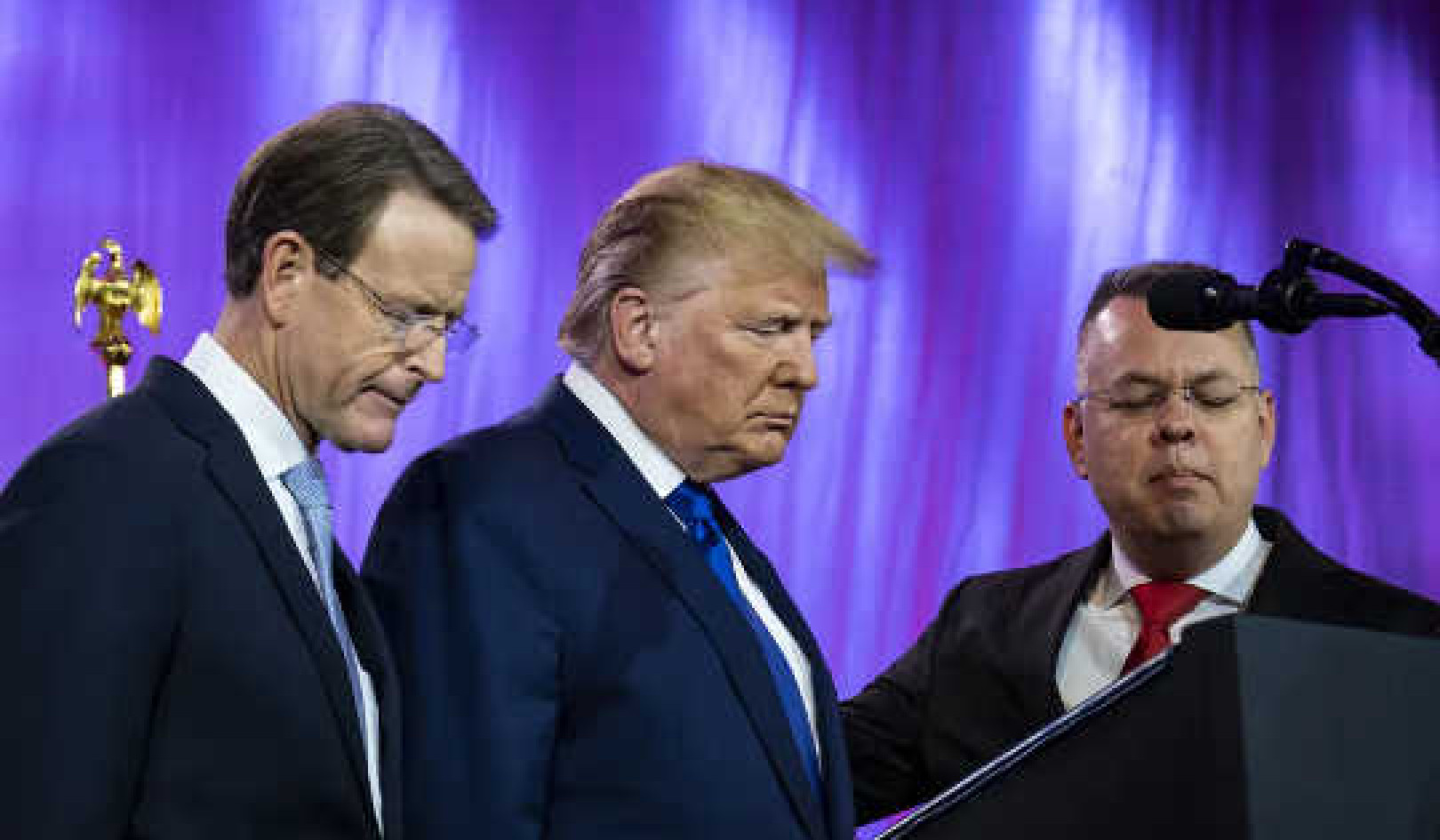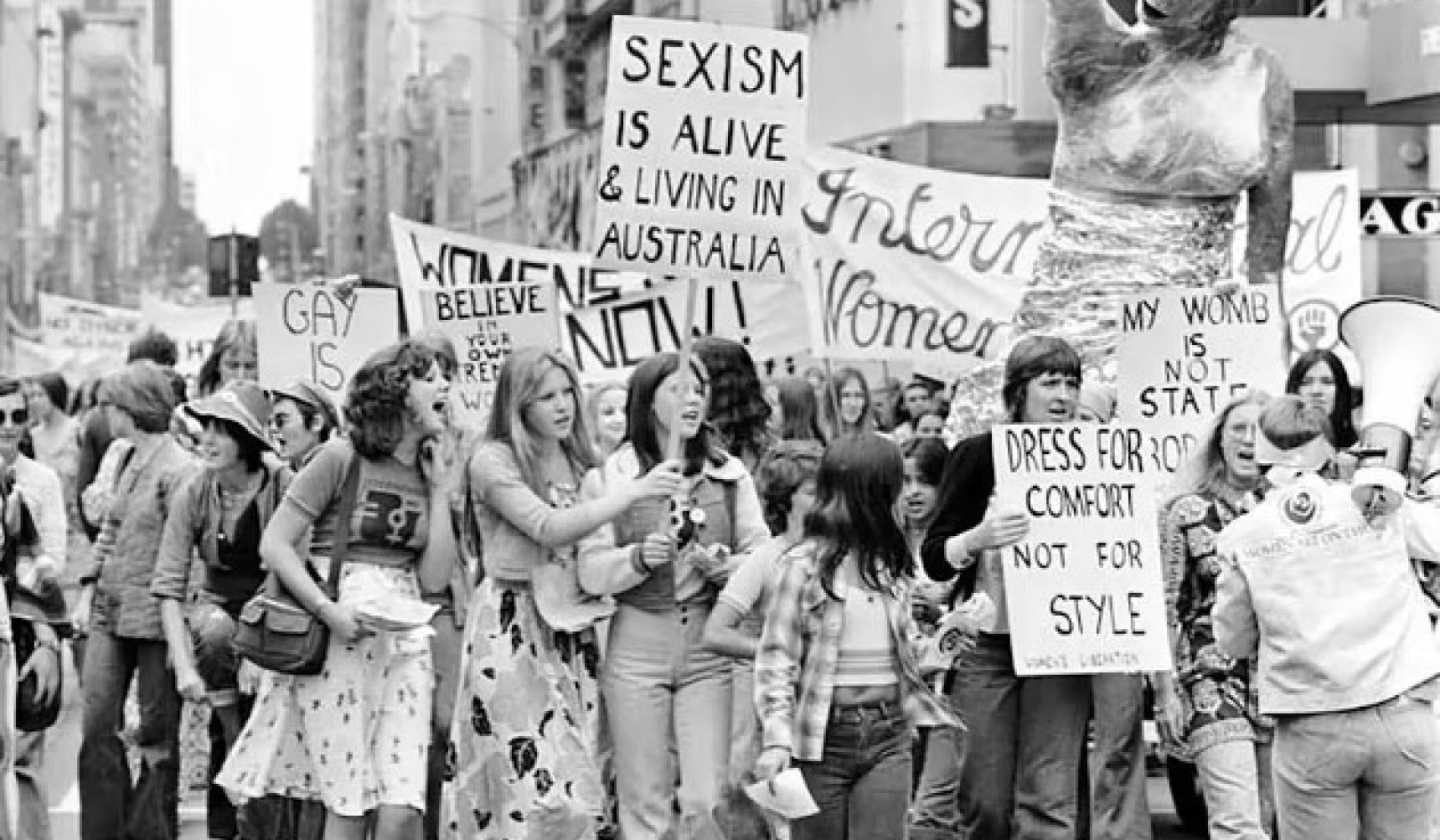
In this Article:
- What are the political motives behind restricting abortion access?
- How do these policies affect women’s participation in society?
- What broader agenda is at play with restrictive abortion laws?
- How can we challenge and resist efforts to limit women’s rights?
- Why are there no laws restricting men's control over their bodies?

The Real Agenda Behind Abortion Restrictions
by Robert Jennings, InnerSelf.com
In a recent campaign stop in Ohio, Republican Vice-Presidential candidate, JD Vance, made a striking comment about Vice President Kamala Harris, asserting she isn't "grateful" for America. Addressing a nearly all-white crowd, he remarked, "If you want to lead this country, you should feel grateful for it, a sense of gratitude. I never hear gratitude come through when listening to Kamala Harris."
Vance's statement is more than a simple critique—it echoes a deeper narrative of enforced deference. It underscores the political motives behind current abortion restrictions.
The Rhetoric of Gratitude
When Vance accuses Harris of lacking gratitude, he taps into a long-standing expectation that marginalized groups must not defy dominant ones. The expectation isn't just for appreciation; it's for submission. Vance's notion of gratitude is steeped in a demand for humility from those who have historically been oppressed, suggesting that Harris, as a woman of color, should show more deference to the white men who, in his view, created the opportunities she enjoys.
This concept of enforced gratitude has been used throughout history to maintain racial and gender hierarchies. Marginalized groups are expected to be thankful for any scraps of opportunity, while their contributions are often minimized or erased. Kamala Harris's personal story, which includes her immigrant parents finding a "land of opportunity," is a testament to her gratitude. Yet, Harris' failure to defer to white male authority is a grievous fault.
The Myth of White Male Construction of America
The myth that America was built solely by white men ignores the vital contributions of Black, Asian, Hispanic, and female labor. This narrative is a deliberate erasure of the diverse hands that have shaped the nation. Kamala Harris's rise to prominence is a testament to the opportunities America can offer. Still, it also highlights the continuous struggle against an entrenched system that demands subservience from those it marginalizes.
Harris's story is not one of ingratitude but of perseverance and achievement. Her expression of gratitude for the opportunities America provided is genuine. Still, it is her refusal to bow to the notion that these opportunities were handed to her by benevolent white men that seems to irk Vance and his ilk. It's a refusal to accept a narrative that seeks to diminish her accomplishments and the struggles that came with them.
The Political Motives Behind Abortion Restrictions
The drive to restrict access to abortion is not just about controlling women's reproductive rights—it's about maintaining a broader social and political order. During his confirmation hearing, Justice Kavanaugh was famously questioned by Kamala Harris about any laws that restrict men's control over their bodies. His inability to name any underscores the gendered nature of such laws. The focus on controlling women's bodies is a deliberate strategy to limit their autonomy and participation in society.
JD Vance and Ted Cruz's demand for police access to menstrual and reproductive health records exemplifies this strategy. By enabling law enforcement to monitor women's reproductive choices, they aim to enforce compliance with restrictive laws and prevent women from seeking abortions out of state or through the mail. This control extends beyond reproductive rights, It strives to keep women in traditional roles and out of positions of power and influence.
The Social and Economic Impact
Restricting access to abortion and birth control has far-reaching consequences for women's participation in the workforce and politics. These policies create barriers that hinder women's ability to pursue careers and educational opportunities, ultimately reinforcing traditional gender roles. The economic impact is profound: women forced to carry unwanted pregnancies to term often face financial instability, limited career prospects, and long-term economic disadvantages.
Moreover, the inability to control their reproductive health limits women's capacity to engage fully in society. It's not just about individual autonomy—it's about maintaining a social order where women's primary role is seen as childbearing. This goal aligns with the broader agenda of today's MAGA GOP, which seeks to roll back the gains women have made in the past century.
The intersection of Religion and Politics
Religious rhetoric is frequently used to justify restrictive abortion policies. JD Vance, a zealous Catholic convert, has drawn parallels between abortion and slavery, suggesting that abortion has a "morally distorting effect" on society. This comparison is not only historically inaccurate but also serves to moralize and politicize women's reproductive choices.
The Supreme Court plays a crucial role in this landscape. Decisions like Dobbs v. Jackson Women's Health Organization, which overturned Roe v. Wade, reflect the court's alignment with conservative religious views. Vance's support for enforcing the Comstock Act, which would ban the shipment of abortion-related drugs and devices, highlights the potential for even more draconian restrictions on women's reproductive rights.
The Broader Agenda
The ultimate goal of these restrictive policies is to undermine women's rights and autonomy. Vance's comments on no-fault divorce, where he argues against making it easier for women to leave unhappy or abusive marriages, reflect a desire to keep women in "their place", dependent and subservient. This stance ignores the reality of domestic violence and the need for women to have the freedom to leave harmful relationships.
Vance's rhetoric about childless women, including his derogatory remarks about Kamala Harris and other prominent women leaders, reveals a broader agenda to delegitimize women's participation in leadership roles. He argues that women without biological children lack a "physical commitment to the future of this country," ignoring the many ways in which women contribute to society beyond motherhood.
A Moment of Clarity
During Justice Brett Kavanaugh's confirmation hearing, Kamala Harris posed a simple yet profound question: "Can you think of any laws that give the government the power to make decisions about the male body?" Kavanaugh's inability to answer highlighted a stark reality: no such laws exist. This moment underscored Harris's sharp understanding of gender inequality in legal contexts and her ability to question the biases underpinning such policies effectively.
This confrontation was significant because it bore the gender disparity in legislative control over bodies. It emphasized how laws restricting women's reproductive rights are inherently discriminatory, as there are no equivalent restrictions placed on men. Harris's question and Kavanaugh's silence revealed the imbalance of power and the targeted nature of reproductive legislation.
The implications of this moment are vast. It demonstrates that the control exerted over women's bodies through restrictive abortion laws is a deliberate act of maintaining gender hierarchies. By highlighting the absence of comparable laws for men, Harris exposed the deep-seated inequality that drives these policies. This disparity isn't just about reproductive rights—it's about the broader agenda to limit women's autonomy and reinforce traditional gender roles.
In challenging Kavanaugh, Harris illuminated the fundamental injustice of these laws. It showcased her commitment to questioning and dismantling systemic inequalities. Her ability to pinpoint such critical issues is a testament to her leadership and advocacy for women's rights.
The efforts to restrict access to abortion and control women's reproductive rights are part of a broader agenda to maintain traditional gender roles and limit women's autonomy. These policies have profound social and economic impacts, hindering women's ability to participate fully in society. By understanding the underlying motives behind these actions, we can better challenge and resist these efforts to roll back the gains women have made in the fight for equality.
As we reflect on the rhetoric and actions of politicians like JD Vance, we must recognize the broader implications of their words and policies. The fight for women's rights is far from over, and it requires a continued commitment to advocating for autonomy, equality, and justice for all.
About the Author
 Robert Jennings is co-publisher of InnerSelf.com with his wife Marie T Russell. He attended the University of Florida, Southern Technical Institute, and the University of Central Florida with studies in real estate, urban development, finance, architectural engineering, and elementary education. He was a member of the US Marine Corps and The US Army having commanded a field artillery battery in Germany. He worked in real estate finance, construction and development for 25 years before starting InnerSelf.com in 1996.
Robert Jennings is co-publisher of InnerSelf.com with his wife Marie T Russell. He attended the University of Florida, Southern Technical Institute, and the University of Central Florida with studies in real estate, urban development, finance, architectural engineering, and elementary education. He was a member of the US Marine Corps and The US Army having commanded a field artillery battery in Germany. He worked in real estate finance, construction and development for 25 years before starting InnerSelf.com in 1996.
InnerSelf is dedicated to sharing information that allows people to make educated and insightful choices in their personal life, for the good of the commons, and for the well-being of the planet. InnerSelf Magazine is in its 30+year of publication in either print (1984-1995) or online as InnerSelf.com. Please support our work.
Creative Commons 4.0
This article is licensed under a Creative Commons Attribution-Share Alike 4.0 License. Attribute the author Robert Jennings, InnerSelf.com. Link back to the article This article originally appeared on InnerSelf.com
Article Recap:
In examining the rhetoric and actions of politicians like JD Vance, it becomes clear that restrictive abortion policies are part of a broader agenda to maintain traditional gender roles and limit women’s autonomy. Kamala Harris’s poignant questioning of Justice Kavanaugh underscores the profound gender inequalities inherent in these laws. Recognizing and challenging these underlying motives is crucial for advocating for women’s rights and ensuring equality in all spheres of life.
Books on Inequality from Amazon's Best Sellers list
"Caste: The Origins of Our Discontents"
by Isabel Wilkerson
In this book, Isabel Wilkerson examines the history of caste systems in societies around the world, including in the United States. The book explores the impact of caste on individuals and society, and offers a framework for understanding and addressing inequality.
Click for more info or to order
"The Color of Law: A Forgotten History of How Our Government Segregated America"
by Richard Rothstein
In this book, Richard Rothstein explores the history of government policies that created and reinforced racial segregation in the United States. The book examines the impact of these policies on individuals and communities, and offers a call to action for addressing ongoing inequality.
Click for more info or to order
"The Sum of Us: What Racism Costs Everyone and How We Can Prosper Together"
by Heather McGhee
In this book, Heather McGhee explores the economic and social costs of racism, and offers a vision for a more equitable and prosperous society. The book includes stories of individuals and communities who have challenged inequality, as well as practical solutions for creating a more inclusive society.
Click for more info or to order
"The Deficit Myth: Modern Monetary Theory and the Birth of the People's Economy"
by Stephanie Kelton
In this book, Stephanie Kelton challenges conventional ideas about government spending and the national deficit, and offers a new framework for understanding economic policy. The book includes practical solutions for addressing inequality and creating a more equitable economy.
Click for more info or to order
"The New Jim Crow: Mass Incarceration in the Age of Colorblindness"
by Michelle Alexander
In this book, Michelle Alexander explores the ways in which the criminal justice system perpetuates racial inequality and discrimination, particularly against Black Americans. The book includes a historical analysis of the system and its impact, as well as a call to action for reform.































